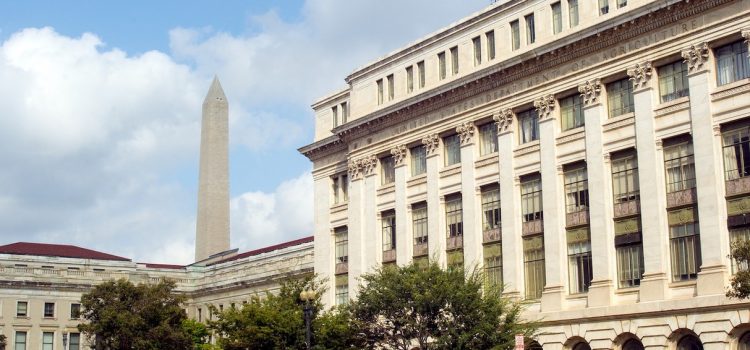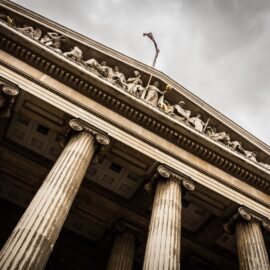

This article is an excerpt from the Shortform book guide to "The Power Elite" by C. Wright Mills. Shortform has the world's best summaries and analyses of books you should be reading.
Like this article? Sign up for a free trial here.
When civil service in America expanded, how did power shift? What resulted from the reforms to the patronage system?
C. Wright Mills argues that federal bureaucratic agencies in the U.S. have slowly gained more and more power than elected officials at every level—officials who are far more accountable to the American people. An important step in this process was growing the size and scope of bureaucracy over time.
Keep reading for a brief history of civil service that exposes one of the ways the nation’s elites centralized power.
A History of Civil Service in America
A thorough history of civil service in America sheds light on the power elite and their strategies. In the early 20th century, presidents like Theodore Roosevelt and especially Franklin Delano Roosevelt expanded the civil service and dismantled much of the patronage system of the past, explains Mills. This contributed to the centralization of power in two distinct ways:
1) The expansion of the civil service invested more power in federal non-elected positions. New federal agencies within the executive branch had power over major aspects of American life. Since these positions were appointed, those filling them were only accountable to those in power and not the public at large. For example, monetary policy (how much money to print) was a major subject of debate in early American politics among voters and elected officials. However, in 1913, the government established the Federal Reserve—a civil service agency staffed by appointed officials that controlled the country’s monetary policy directly.
(Shortform note: To contextualize Mills’s concerns with the growing power of bureaucrats, we can look to one of his major influences: German sociologist Max Weber (1864-1920). Weber believed overgrown bureaucracy to be the main threat to a democratic and free society. According to Weber, a more complex state requires more technically skilled people to manage it—meaning the more complicated a state becomes, the more power skilled bureaucrats gain. This is because they not only have more to manage but also because they are the only ones who know how to manage the state. From this perspective, we can see why Mills fears the growth of the bureaucratic state might make the country less democratic.)
2) Reforming the patronage system took wealth and power away from low-level party members. The patronage system made elites provide lower-level officials with jobs in exchange for their loyalty. While this was blatant corruption and graft, it also allowed for some degree of upward mobility and elite accountability—if elites ever stopped providing benefits and opportunities to those beneath them, then they would lose the support of their base.
Reforms of this era cracked down on bribery and graft, but they crucially still allowed elites to control government positions. This meant that, while lower-level politicians still kept or lost their jobs based on loyalty to elites, they weren’t able to hold elites accountable in return by demanding upward mobility and wealth. Mills, therefore, claims that, despite these reforms, America still doesn’t have a merit-based and apolitical civil service since politicians can create or destroy civil service jobs at will.
(Shortform note: In the years since Mills wrote The Power Elite, further changes to bureaucracy—specifically the Civil Service Reform Act of 1978, which remains largely unchanged to this day—have given federal employees additional job protections. Some critics even argue that under current standards, it’s too difficult to fire underperforming federal employees. They use the analogy of government as a business to explain their argument: Low-level civil servants and bureaucrats need to be accountable to higher-ups just like low-level employees need to be accountable to their bosses. This helps ensure efficiency and productivity.)

———End of Preview———
Like what you just read? Read the rest of the world's best book summary and analysis of C. Wright Mills's "The Power Elite" at Shortform.
Here's what you'll find in our full The Power Elite summary:
- How a group of corporate elite controls America's politics and economics
- How the elite exploit America's institutions for their own benefit
- A look at the dangers that arise when citizens feel powerless






